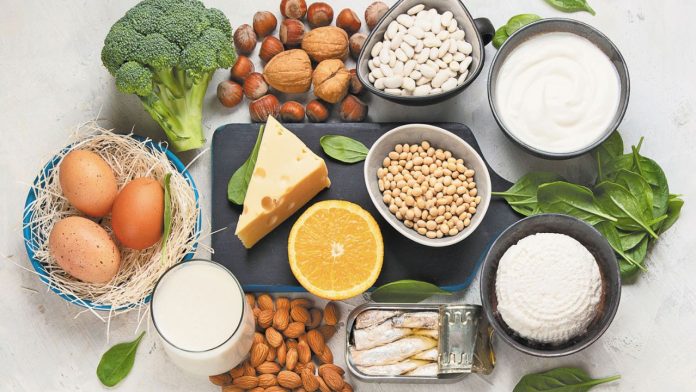Important minerals like calcium, magnesium, phosphorus, and vitamin D are required for healthy bones. The health of the bones is greatly dependent on these nutrients. These nutrients are absorbed at different rates. It is reported that the absorption rate of calcium is approximately 60% during infancy and early childhood, dropping to 25–30% in adulthood and decreasing even further with age. The daily calcium need for children is 400–500 mg, and it rises during adolescence. Since the majority of kids enjoy eating milk, paneer, and curd, including dairy-based foods into their daily diets is rather simple and comfortable. In order to increase their exposure to sunlight and obtain vitamin D, children should also be encouraged to play outside. For both adults and children, including eggs, nuts, seeds, and dried fruits should be a regular occurrence.
Essential nutrients for stronger bones:
- Calcium is a crucial component that supports the health of your bones. You should include more foods high in calcium in your diet, such as rajma, ragi, horse gram, soy beans, and various types of lentils. Additional sources of calcium include dried fruits and nuts, broad beans, cluster beans, paneer, milk, and lady fingers.
- Phosphorus: The body requires both calcium and phosphorous, two vital elements, to keep strong bones. Nuts, seeds, meat, poultry, and eggs are excellent providers of phosphorus.
- Vitamin D: 7-dehydrocholesterol from the skin is converted to vitamin D3 and used when exposed to sunshine, which is the main source of vitamin D. Egg yolks, fatty fish (salmon, sardine, herring, mackerel, red snapper), and mushrooms are dietary sources.
- Magnesium: This nutrient is necessary to keep bone mineral density greater, which lowers the risk of osteoporosis and bone fractures. Good sources of magnesium include nuts, tofu, pumpkin and sunflower seeds, black-eyed beans, and spinach variants.

 हिंदी
हिंदी






